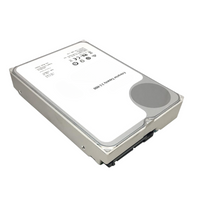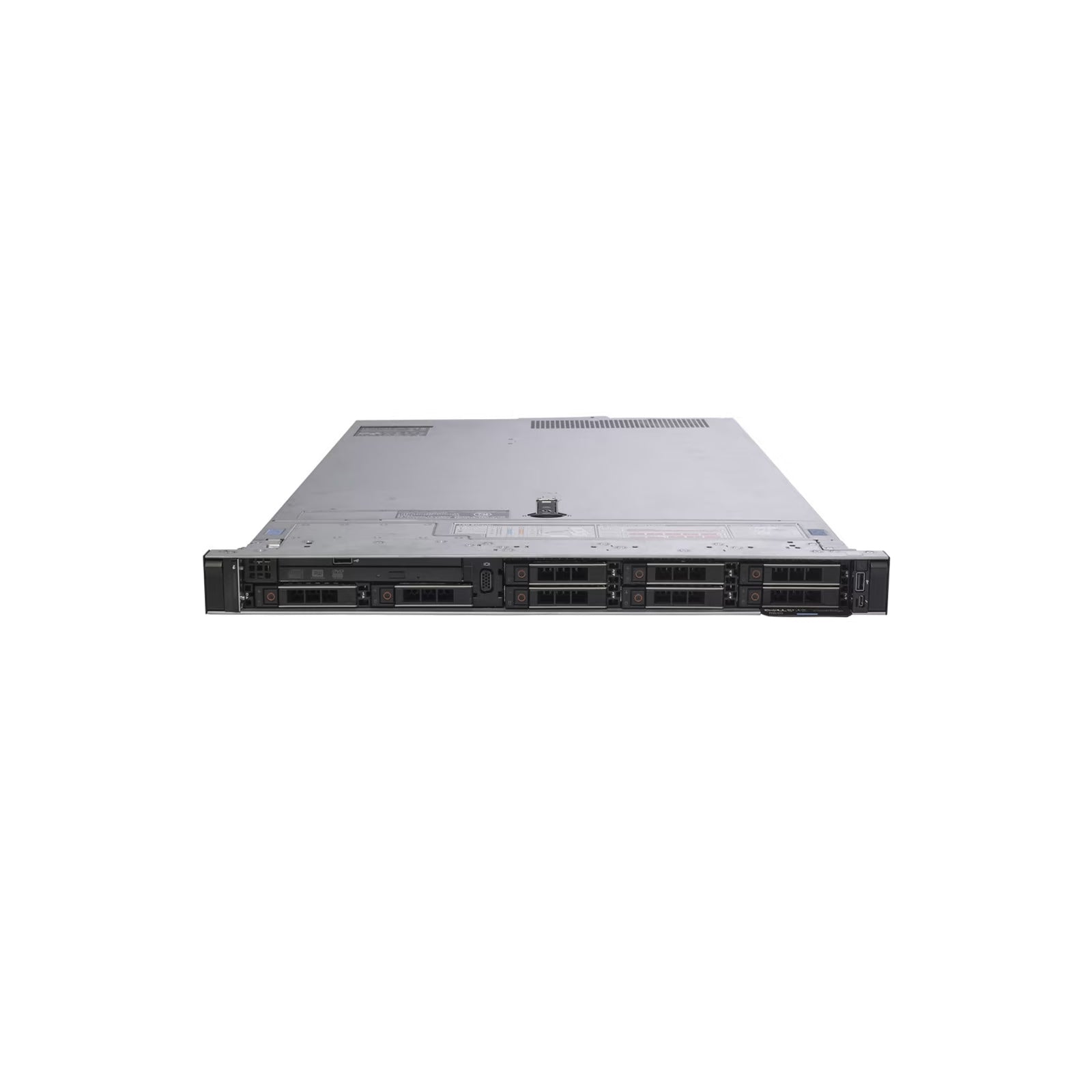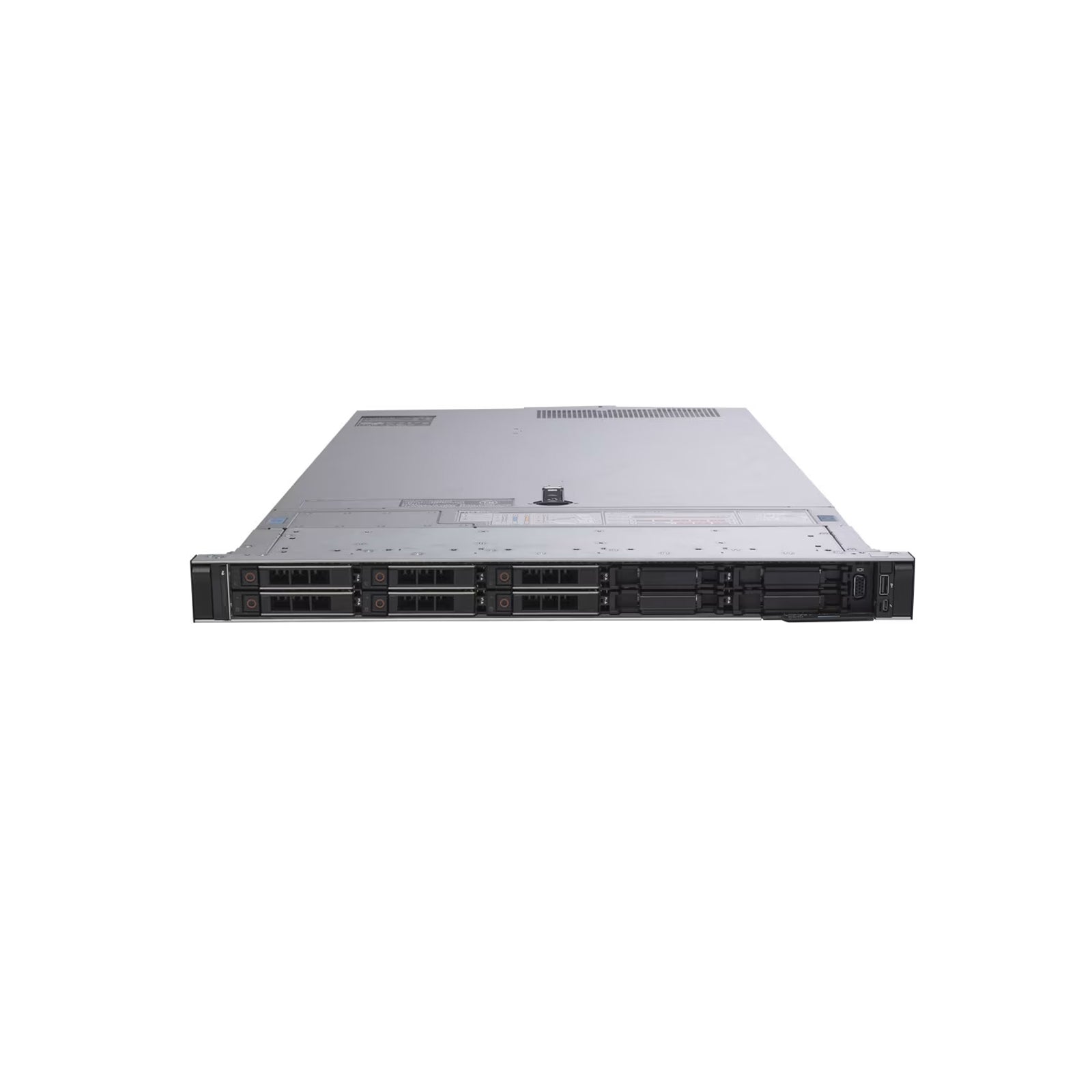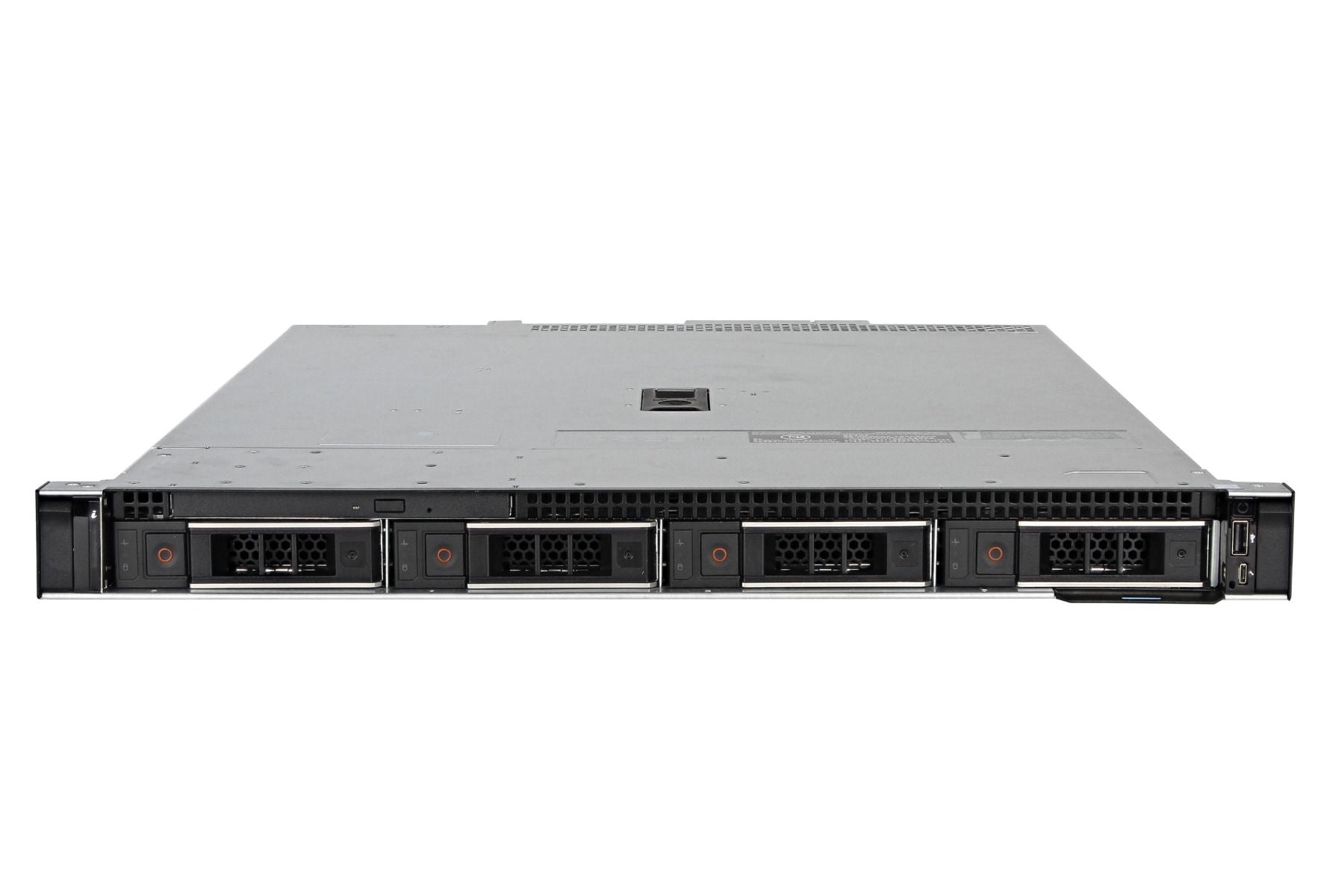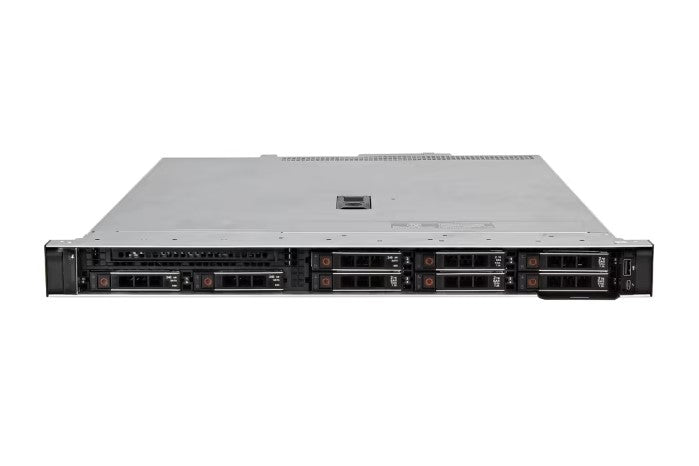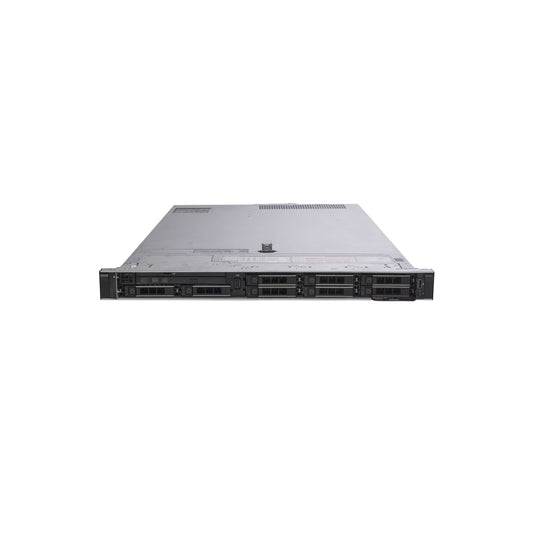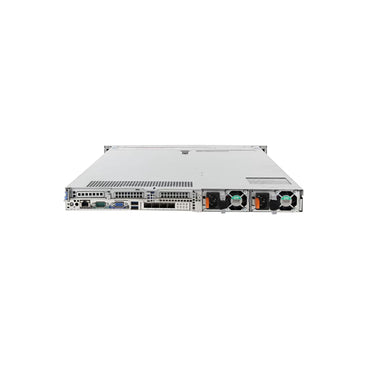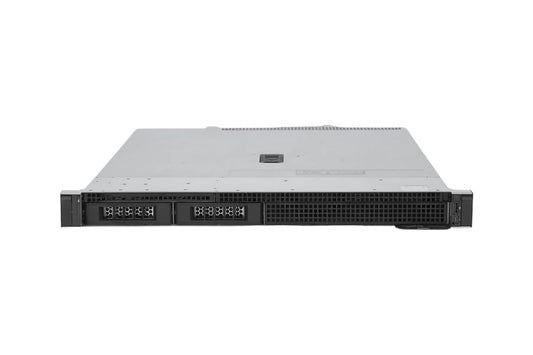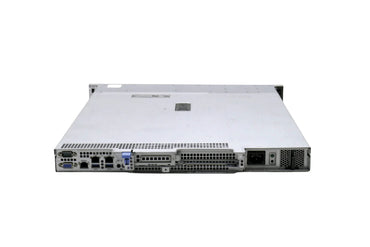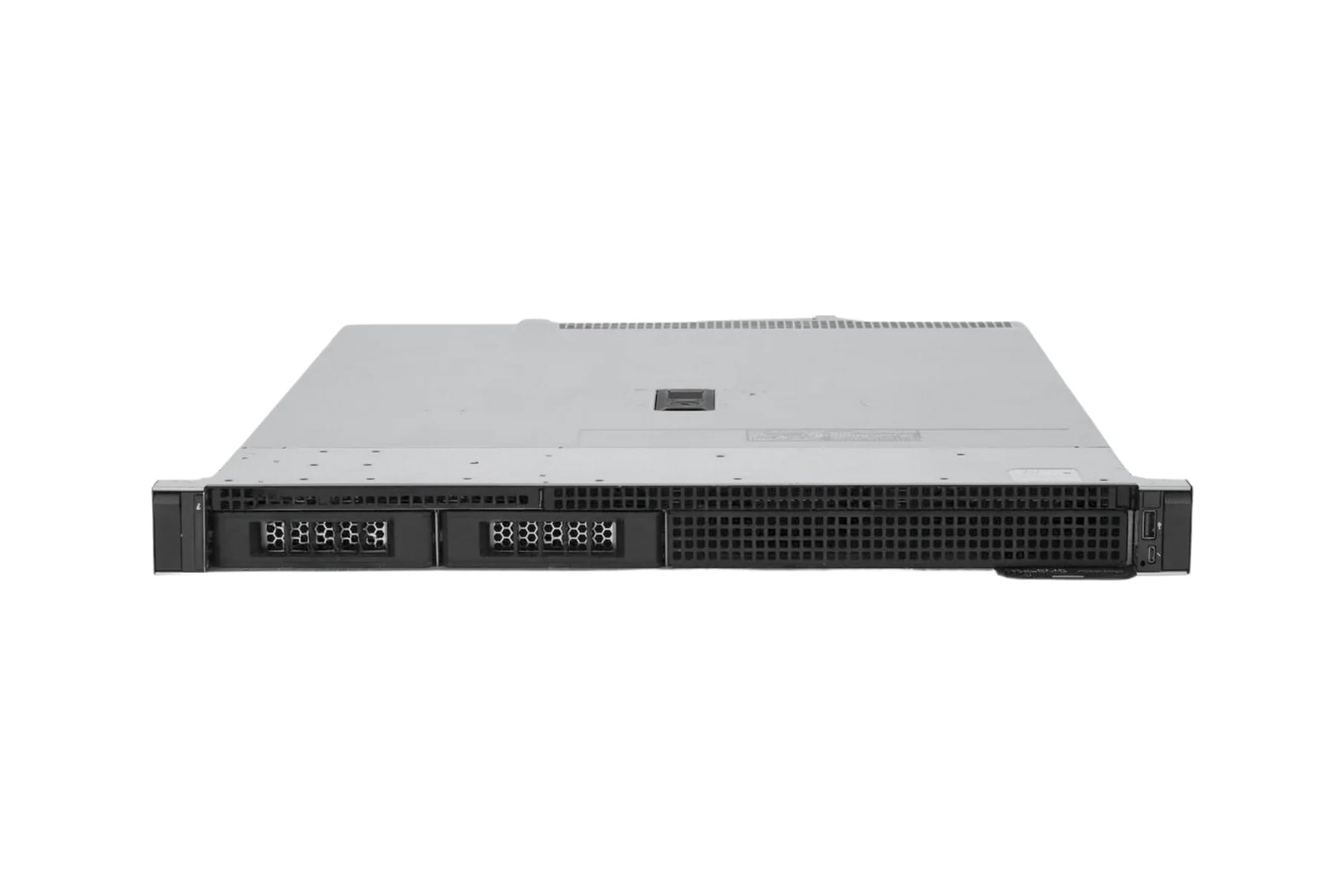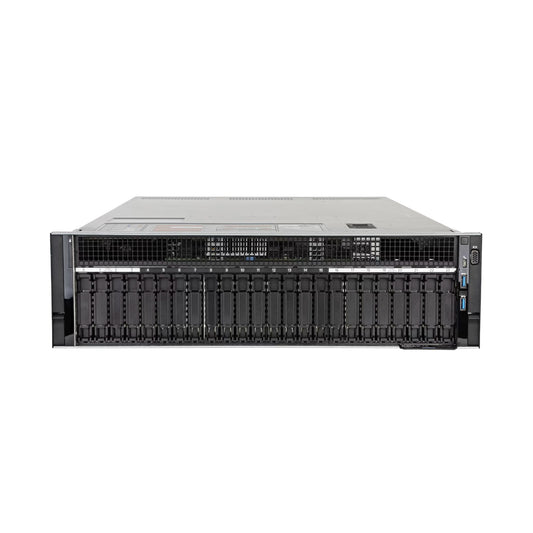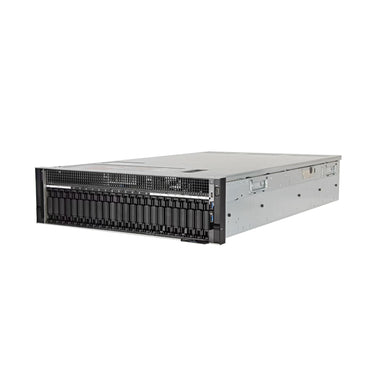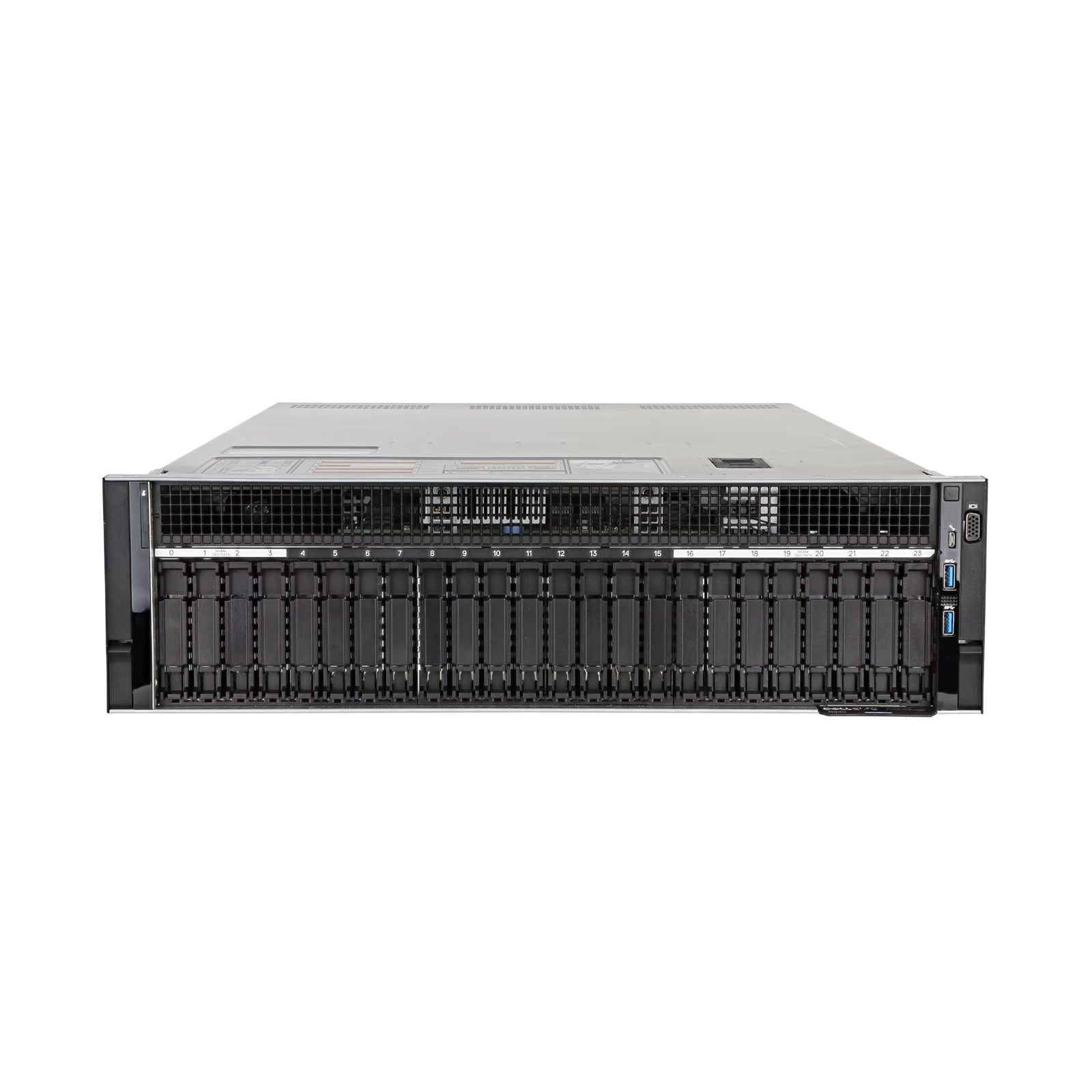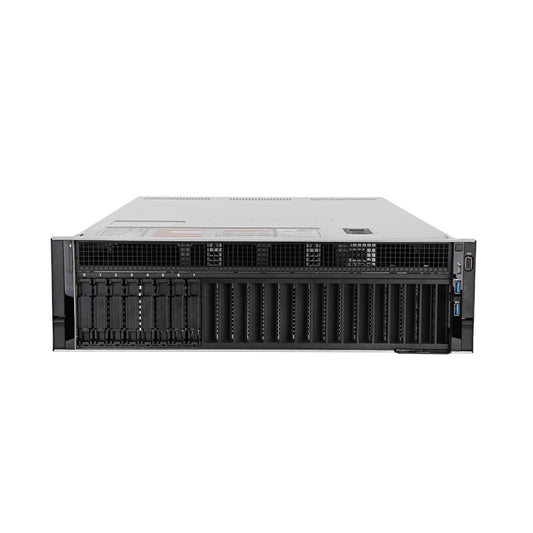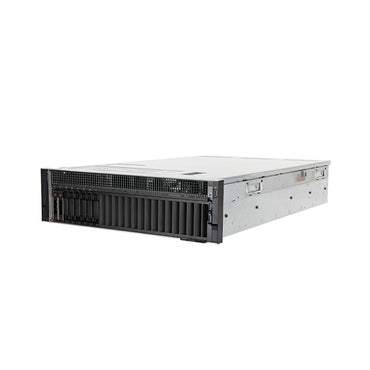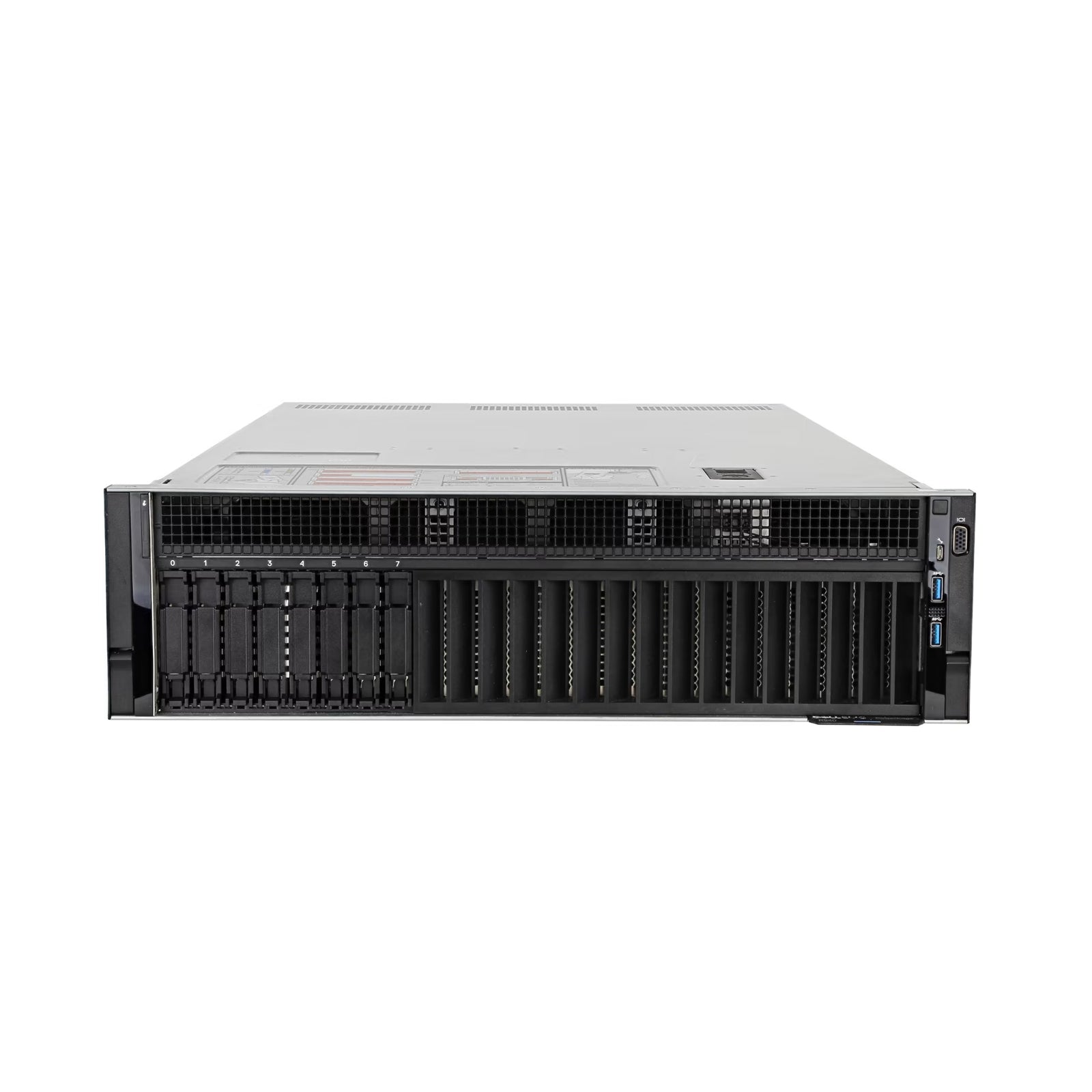Dell PowerEdge R340 Servers
A 1U Server that Excels
The Dell PowerEdge R340 is a compact yet powerful 1U rack server that brings enterprise-level performance to small and medium businesses with support for Intel Xeon processors and flexible storage options. Offering easy scalability, remote management, and reliable uptime, it helps organizations streamline operations, protect data, and grow their IT infrastructure with confidence.
Learn More About your R340
More information for your convenience!
Specification Overview
The Dell PowerEdge R340 is an entry-level, 1U server rack designed to deliver an excellent balance of performance, scalability, and cost-efficiency for small to medium-sized businesses, remote offices, and home lab environments. Offering a robust foundation for a variety of workloads, such as file storage, web hosting, and light virtualization, the R340 is a versatile solution for businesses needing reliable computing power without a substantial investment. With its compact form factor, powerful Intel processors, and Dell’s comprehensive management tools, the R340 is ideal for organizations that require an efficient, scalable server solution for day-to-day operations.
Performance
The Dell PowerEdge R340 is powered by the Intel Xeon E-2200 series processors, ideal for organizations seeking a balance between cost and performance. These processors, with configurations up to 6 cores, handle a range of essential business tasks, from basic IT functions to more advanced applications such as small-scale virtualization and file serving. With base clock speeds of up to 3.6 GHz, the R340 provides sufficient processing power for day-to-day workloads. The server also supports Intel’s Hyper-Threading technology, enhancing multitasking and increasing the efficiency of operations by allowing each core to handle two threads at once. Optional support for Intel Core i3 and Pentium processors gives businesses the flexibility to scale compute capability to meet their specific needs.
Memory and Scalability
The R340 supports up to 64GB of DDR4 ECC (Error Correcting Code) memory across four DIMM slots. This makes the server suitable for critical workloads where data integrity is essential, as ECC memory automatically detects and corrects errors, improving reliability. With its 4 DIMM slots, the R340 allows users to easily scale memory as business needs grow. The server is optimized for workloads that require moderate memory capacity, and its memory scalability provides flexibility for businesses as their workloads become more complex. Compared to the R240's 2-slot configuration, the R340 offers superior memory expansion potential, making it a better fit for growing environments.
Storage Flexibility
The Dell PowerEdge R340 is designed for flexible storage configurations, supporting up to 4 x 3.5” or 8 x 2.5” hot-swappable drives. This makes it adaptable to various storage needs, whether businesses require large storage capacity for general file sharing or high-performance storage for critical applications. The server supports SATA, SAS, and NVMe SSDs, offering a range of options for cost-effective storage or high-speed performance. The R340 also supports hardware PowerEdge RAID Controller configurations (RAID 0, 1, 5, and 10) to ensure data redundancy and optimal storage performance. These features make it suitable for database hosting, web applications, or as a reliable on-site file server.
I/O and Expandability
The Dell PowerEdge R340 provides significant expandability with 2 PCIe Gen 3.0 slots, allowing businesses to add additional components such as network adapters, storage controllers, or even GPUs for specialized tasks. This flexibility in I/O expansion enables businesses to tailor the server to their specific needs. Whether enhancing network capabilities, increasing storage, or boosting processing power through GPUs, the R340 can be customized to accommodate a variety of growing demands. The compact 1U form factor ensures that these components fit within tight rack spaces, making the R340 an excellent choice for environments where space is limited. Compared to the R240’s single PCIe slot, the R340 offers more configuration options for future-proofing.
Virtualization and Home Lab Use
The Dell PowerEdge R340 is an excellent option for small-scale virtualization or home lab environments. With support for hypervisor platforms like VMware, Microsoft Hyper-V, and KVM, users can consolidate multiple workloads onto a single server, running several virtual machines (VMs) simultaneously. This is particularly valuable for businesses looking to optimize their IT infrastructure or for home lab enthusiasts experimenting with virtualization for testing, learning, or development. The server’s flexible configuration, with ample memory and storage options, makes it suitable for a wide range of virtualization applications, including development environments and small-scale virtual desktop infrastructure (VDI). Its stronger compute and expansion capabilities give it an advantage over similarly sized entry-level servers.
Management and Automation
The Dell PowerEdge R340 comes with Dell’s integrated iDRAC9 (Integrated Dell Remote Access Controller) with Lifecycle Controller, offering comprehensive remote management capabilities. IT administrators can remotely manage hardware configurations, firmware updates, diagnostics, and server monitoring, reducing the need for direct physical access and saving time on manual interventions. Additionally, Dell OpenManage provides centralized monitoring, alerts, and automated updates, helping businesses streamline server maintenance and ensure smooth operation with minimal disruption. These enterprise-grade management tools make the R340 easier to deploy and maintain in both single-site and distributed environments. The enhanced automation features improve operational efficiency, especially for smaller IT teams.
Energy Efficiency
The Dell PowerEdge R340 is designed with energy efficiency in mind, making it a cost-effective solution for businesses seeking to reduce power consumption. Equipped with intelligent power management features such as Dynamic Power Management, the server adjusts its power usage based on workload demands, ensuring efficient energy consumption. The R340 is also fitted with low-wattage power supplies, reducing its overall energy footprint and operating costs. These energy-saving features contribute to lowering the total cost of ownership (TCO), making the R340 an excellent investment for businesses looking to control operational expenses. It's an ideal fit for businesses balancing performance needs with utility cost considerations.
Reliability and Availability
Reliability is a core feature of the Dell PowerEdge R340. The server offers optional redundant power supplies and supports hot-swappable drives, allowing for seamless recovery in the event of hardware failures. The R340 is also equipped with predictive failure analysis and alerts, which notify administrators of potential issues before they lead to system downtime. This proactive monitoring ensures that businesses can address potential failures early, ensuring high availability and reducing operational disruptions. For businesses that rely on continuous operations, the R340’s reliability features are crucial for maintaining uptime and service continuity.
Key Features at a Glance:
- Compute Power: Intel Xeon E-2200 series processors with up to 6 cores for versatile performance across a variety of tasks.
- Memory Capacity: Supports up to 64GB of DDR4 ECC memory for enhanced reliability and data integrity.
- Storage Options: Configurable for up to 4 x 3.5” or 8 x 2.5” drives, with support for SATA, SAS, and NVMe SSDs for flexibility in storage configurations.
- I/O Expandability: 2 PCIe Gen 3.0 slots for additional network cards, storage controllers, or GPU expansion.
- Virtualization Support: Compatible with VMware, Microsoft Hyper-V, and other hypervisor platforms for consolidated workloads and virtual machine hosting.
- Management Tools: iDRAC9 with Lifecycle Controller and Dell OpenManage for remote server management and automation.
- Energy Efficiency: Dynamic power management and low-wattage power supplies to minimize energy consumption.
- Reliability: Redundant power supply options, hot-swappable drives, and proactive failure monitoring to ensure high availability and uptime.
Business Value
The Dell PowerEdge R340 offers an affordable, high-performance solution for small businesses, remote offices, and home lab users. Its flexible storage configurations, powerful Intel Xeon processors, and support for virtualization make it ideal for workloads such as file serving, web hosting, and virtualized environments. The compact form factor makes it perfect for space-constrained environments, while the energy-efficient design helps minimize operational costs. With its combination of performance, scalability, and affordability, the R340 is a reliable, cost-effective server that meets the needs of growing businesses and home labs alike. It offers a stronger foundation than the R240, making it a natural step up for organizations anticipating growth or requiring more robust infrastructure.
